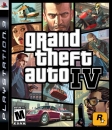logic56 said:
Mummelmann said:
NintendoPie said:
I would say Sony. They have the highest selling console, the PS2, and they could've done something just as great with the PS3. (Don't ask me what made the PS2 so popular, I don't know.) Sony did something right the generation before last gen. that they didn't do with the PS3. |
I think that a large part of the PS2's success can be attributed to the failings of the competition.
|
lmao that's a good one
|
Indeed.
The PS2 was riding the hem of the PS1 success and had massive 3rd party support from the beginning. The Gamecube released a whole year-and a half later and the x-box even later. That was one big mistake, especially following the PS1's incredible run. Comparatively, launching for instance the PS3 and Wii after the 360 didn't seem like too big of a deal since the 360 was following a rather poor machine saleswise and there was certainly no reason to get a jump on Nintendo either. In conclusion here; launching a full year-and a half after the successor to a historic market leader and sales record breaker is not very clever. In retrospect, launching the PS3 much later than the 360 was not a good move but no one was privvy to this information at the beginning of the generation (if you're going to choose that route).
Let's move on;
The Gamecube kept the festering 3rd party woes that the N64 had inherited from the SNES and NES era where Nintendo alienated themselves from developers by charging ridiculous royalties and setting all kinds of demands and licensing passes to be able to launch anything on their platform (this is largely why NES and SNES games were so expensive to buy). Nintendo did little to nothing to alleviate this situation, they did not go for any meaningful purchases to aquire more 2nd and 1st party talent nor did they build a very friendly environment for the developers to work in. They adopted yet another silly format for their games which hampered storage and compatability a great deal as well as increase medium manufacture and distribution costs (again leading to expensive Nintendo titles). In addition to this, they priced their peripherals too high, leading to even more grief. To add fuel to the fire, they tried to compete fully in the "core" market where the PS2 reigned supreme, a daunting and hopeless task when having no 3rd party relations to speak of, expensive titles and peripherals and a silly format to boot added to the simple fact that the PS2 had a massive head start and had already pretty much secured the win by that alone.
Let's keep on at it;
The X-box was announced with much bravado and hot air, a product that was aimed more at the PC centric part of the gaming population with a big processing unit and impressive GPU and even a simple OS. The specs were truly impressive and certainly head and shoulders above the PS2. Then there was the big push for online gaming replacing local multiplayer, this was too soon. Internet speed, server capacity, hardware capacity to render a relevant number of players and actions on-screen at once and sheer interest for internet gaming was just too low, doubly so in the console market. Its like the failed push of Sony's previous formats such as the minidisc; don't aim for a market that isn't there (yet or at all) or has a better counterpart (the PC or MP3). The hardware was also small incentive to purchase and x-box, the design was strange and lumpy and the power was largely wasted on poor 3rd party efforts and games scaled to fit an online gaming model. Put shortly; it didn't do very well and was always destined to not do well under the cirumstances, MS dropped the ball rather heavily (but have had their redemption in the 7th gen).
The PS2 got a lot for free in the inheritance from the PS1, that much is certain and I'm not questioning that the PS2 was a damn good console in its own right but tell me why the above points weren't a large factor contributing to the PS2's success? "lmao, that's a good one" doesn't fit my bill of debate, I'm afraid.




























































